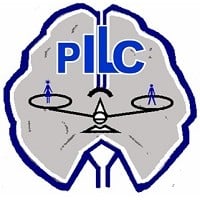
PILC-Tchad
Le PILC, Centre Juridique d'intérêt Public est une association de droit tchadien à but non lucratif et apolitique créé en 2006. Le PILC a pour mission de s'attaquer aux causes fondamentales des violations des Droits Humains au Tchad en favorisant l'accès des personnes démunies, particulièrement les femmes et les enfants aux voies de recours judiciaires et non judiciaires et promouvant la démocratie et le citoyenneté.






